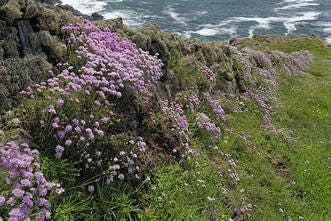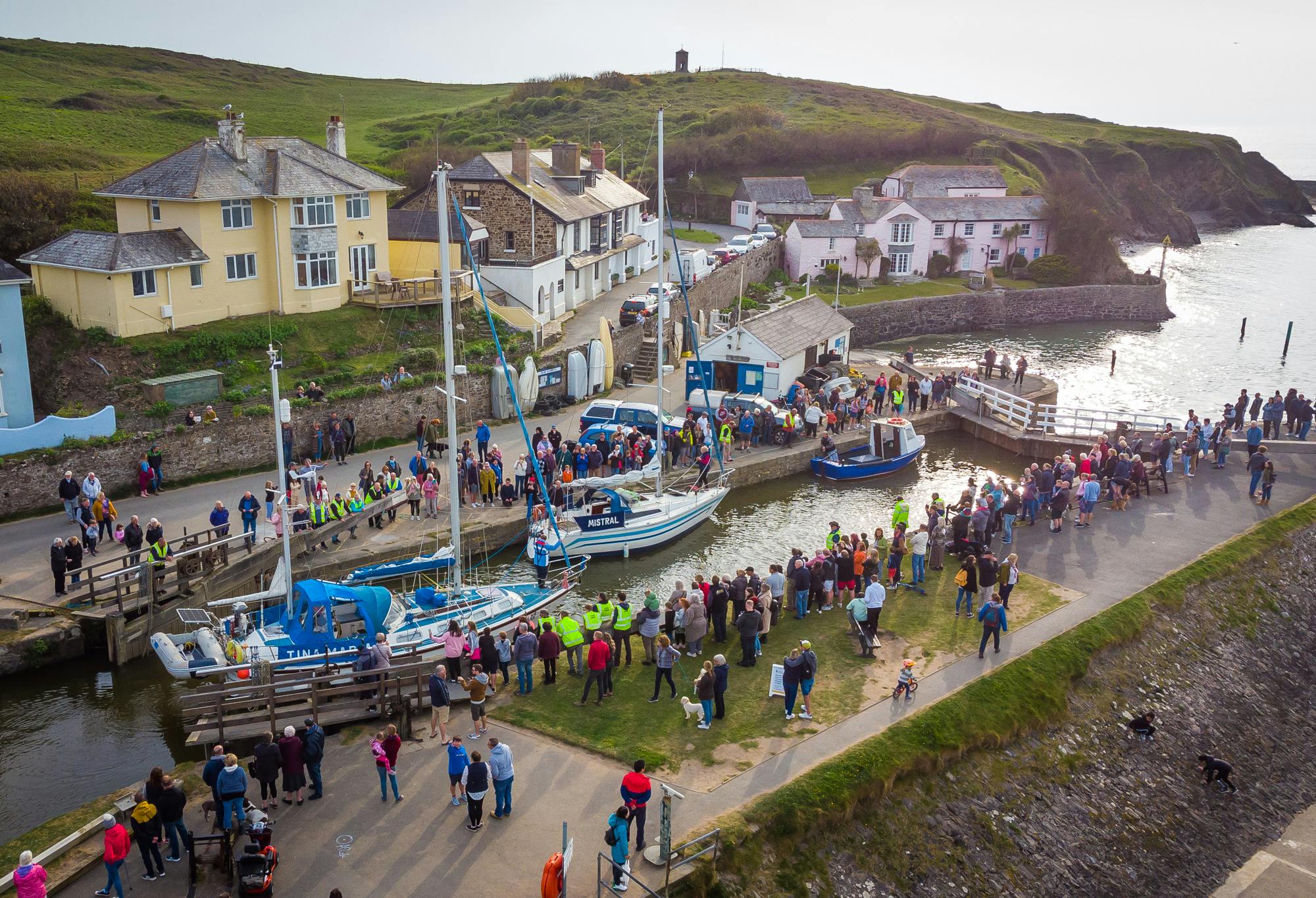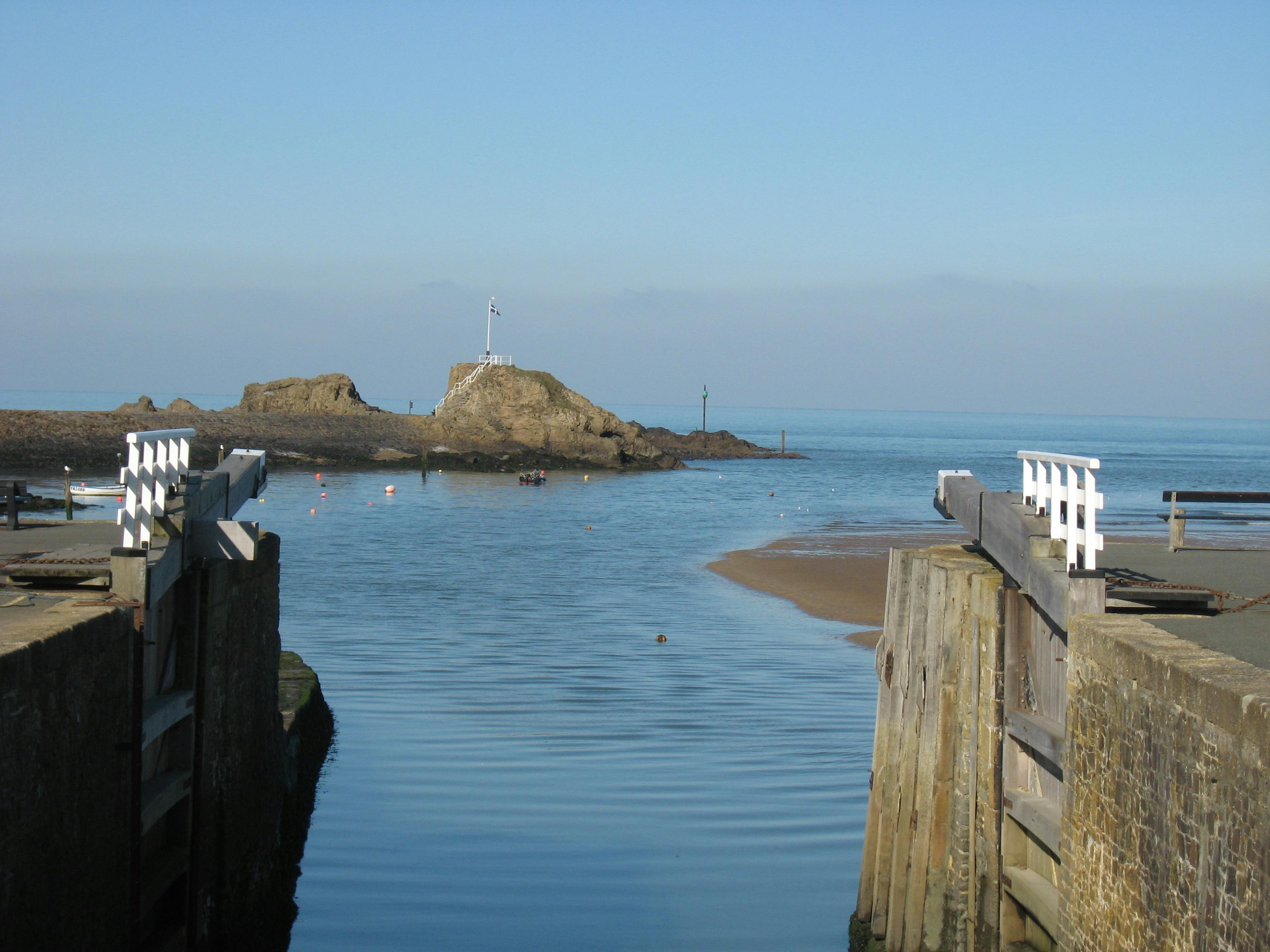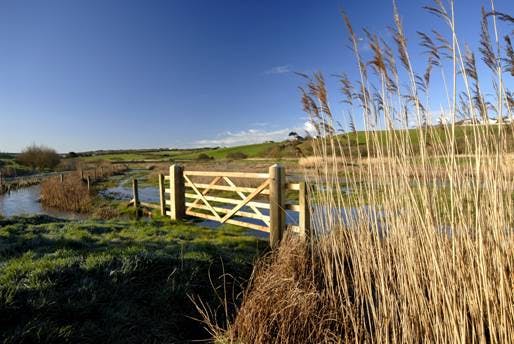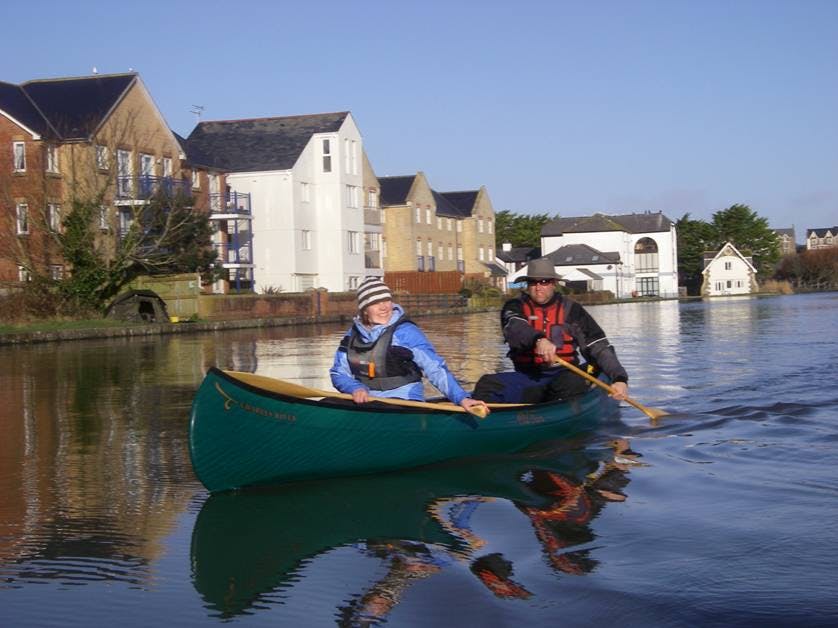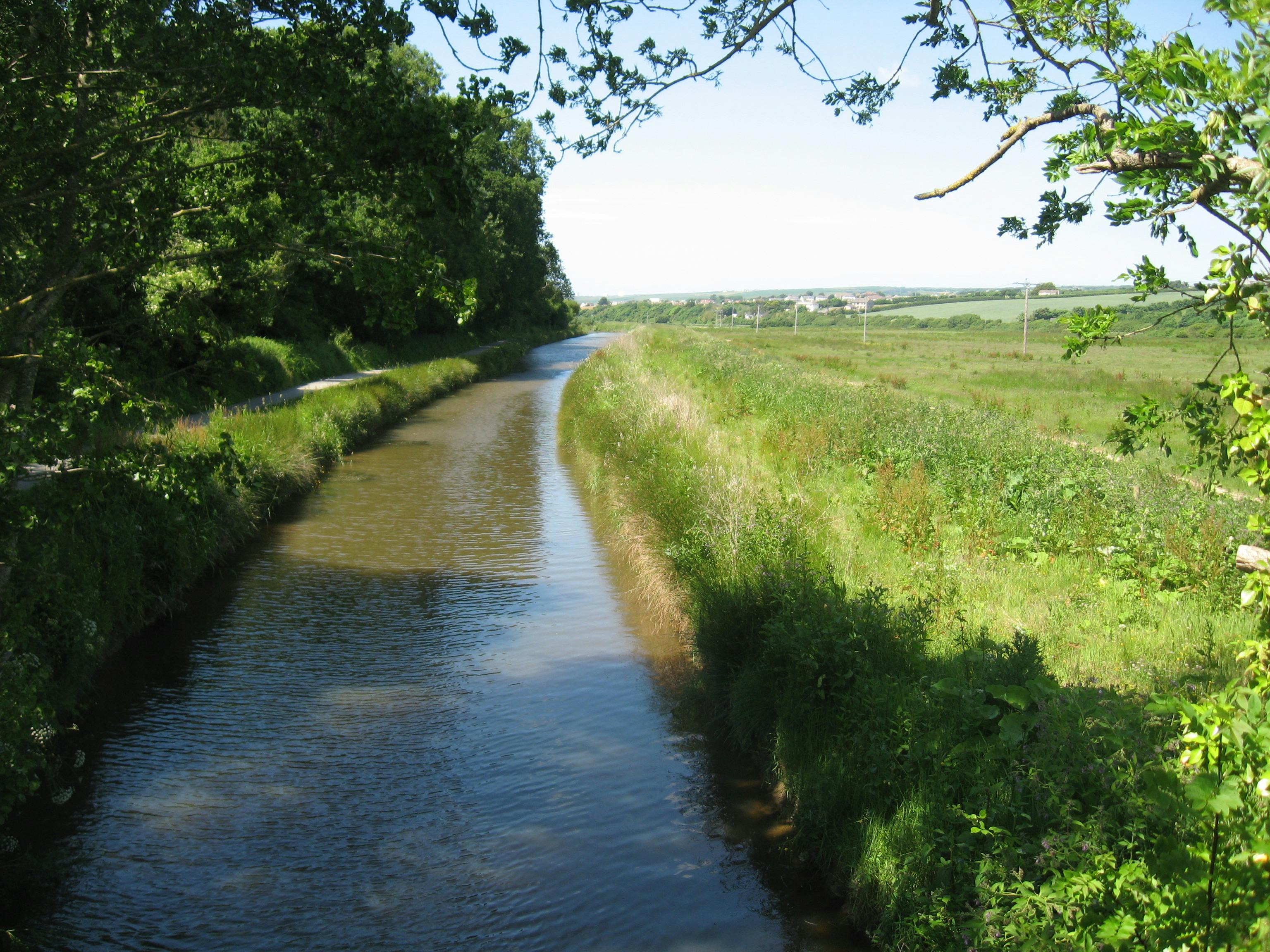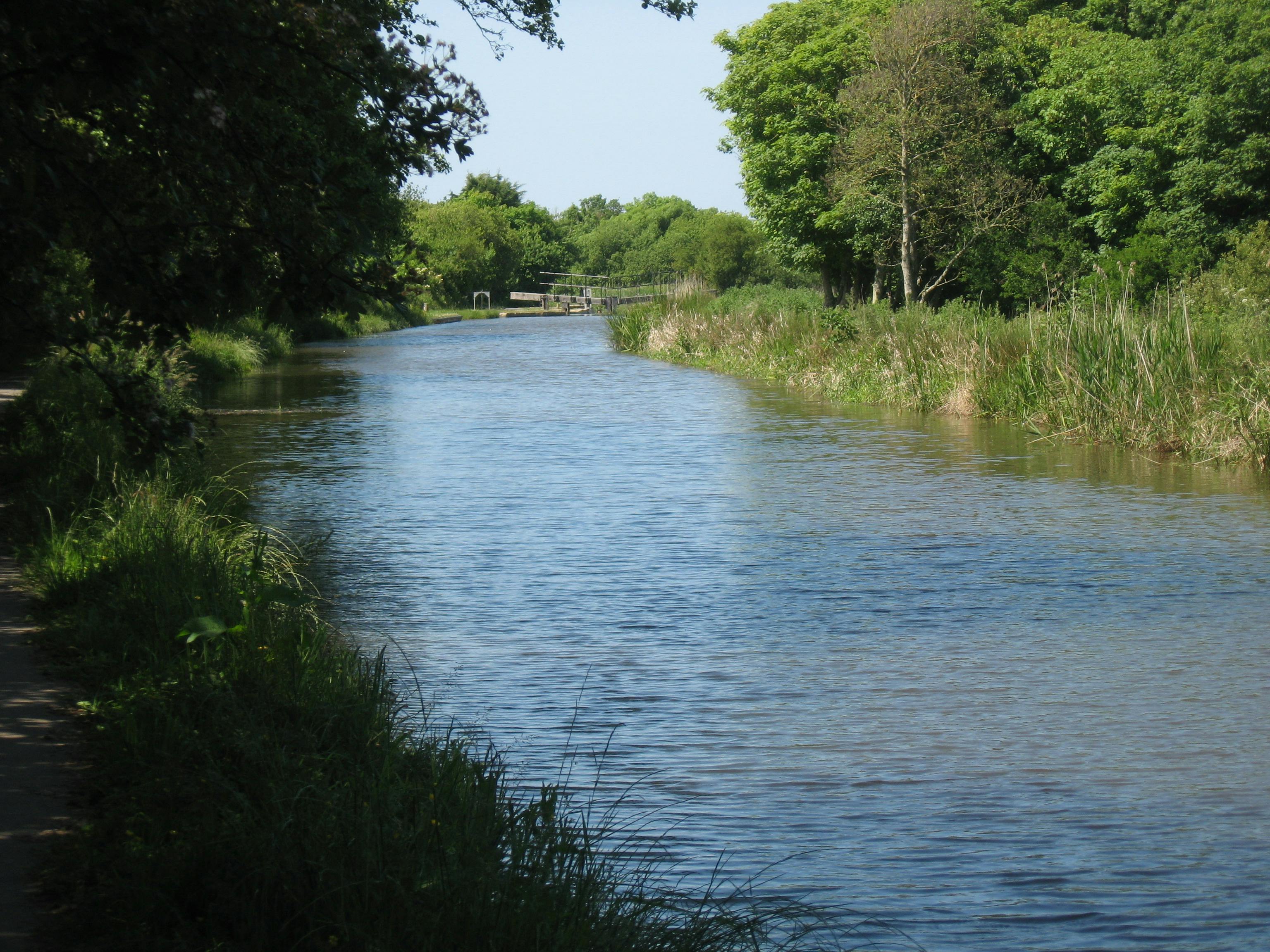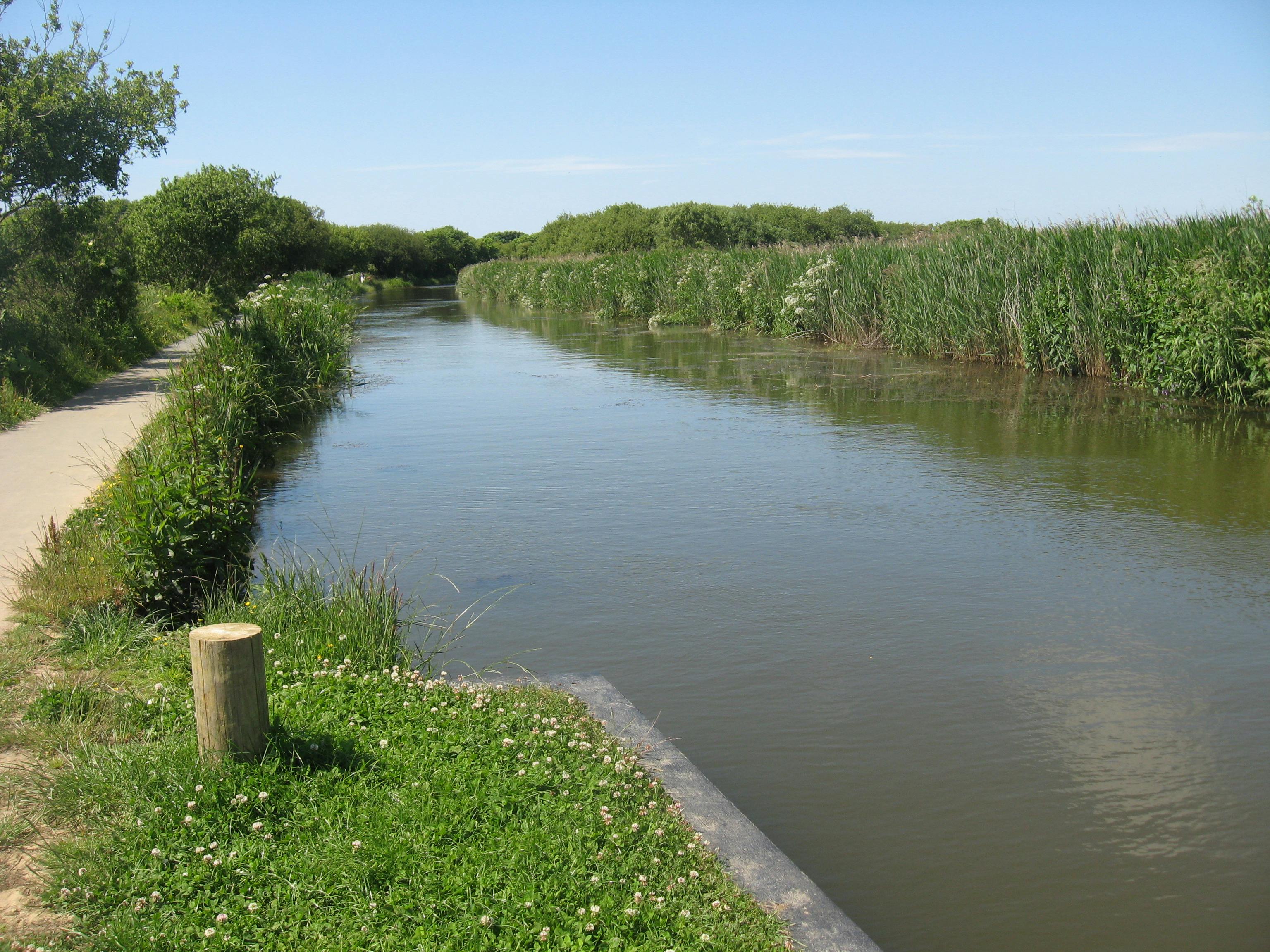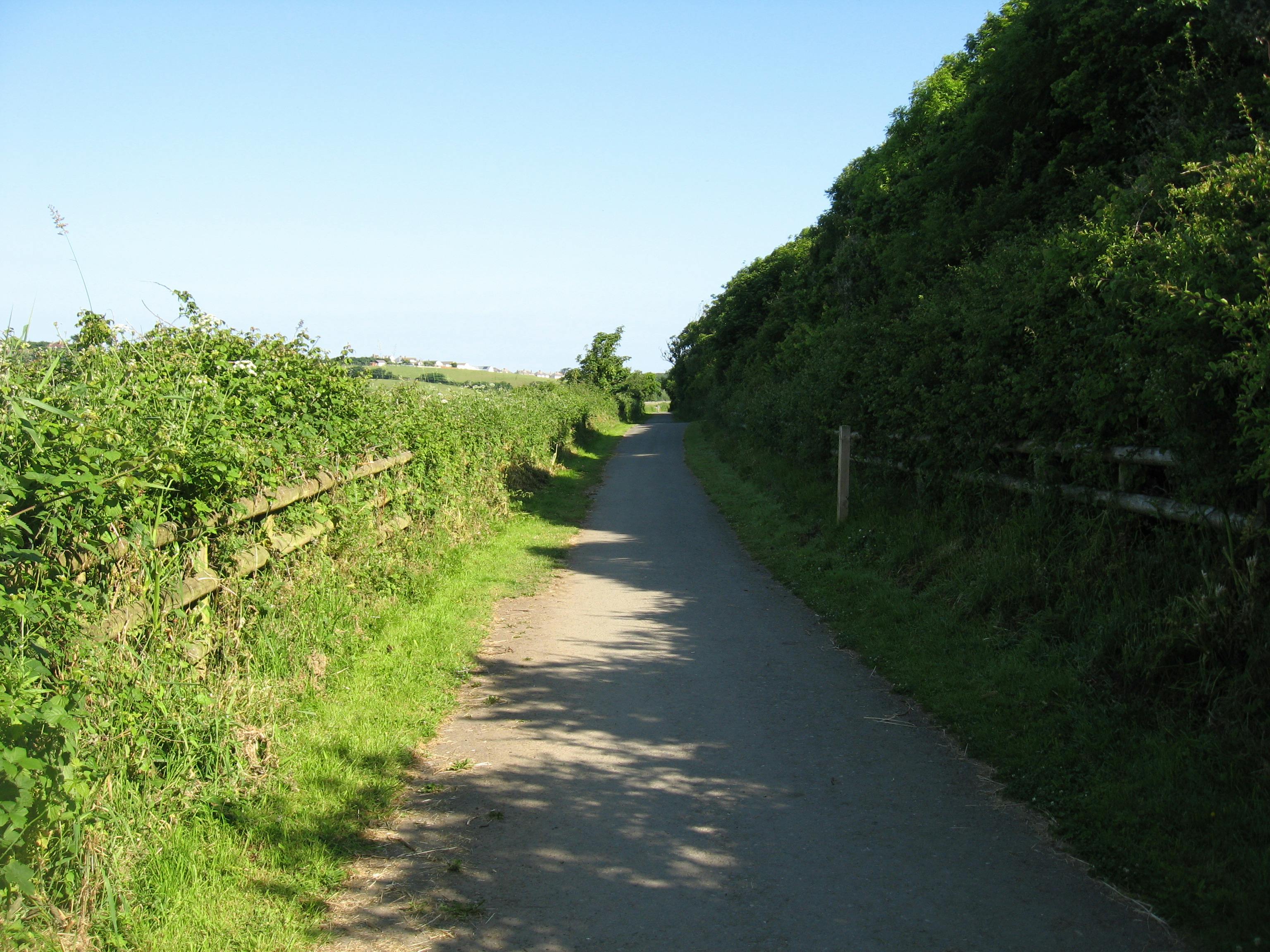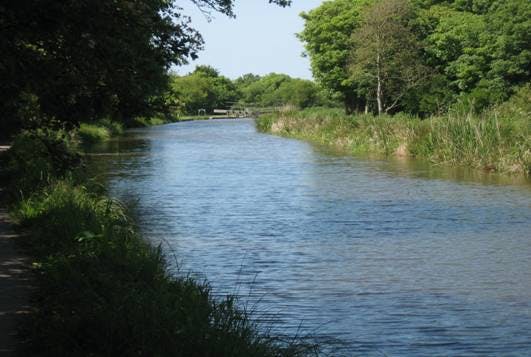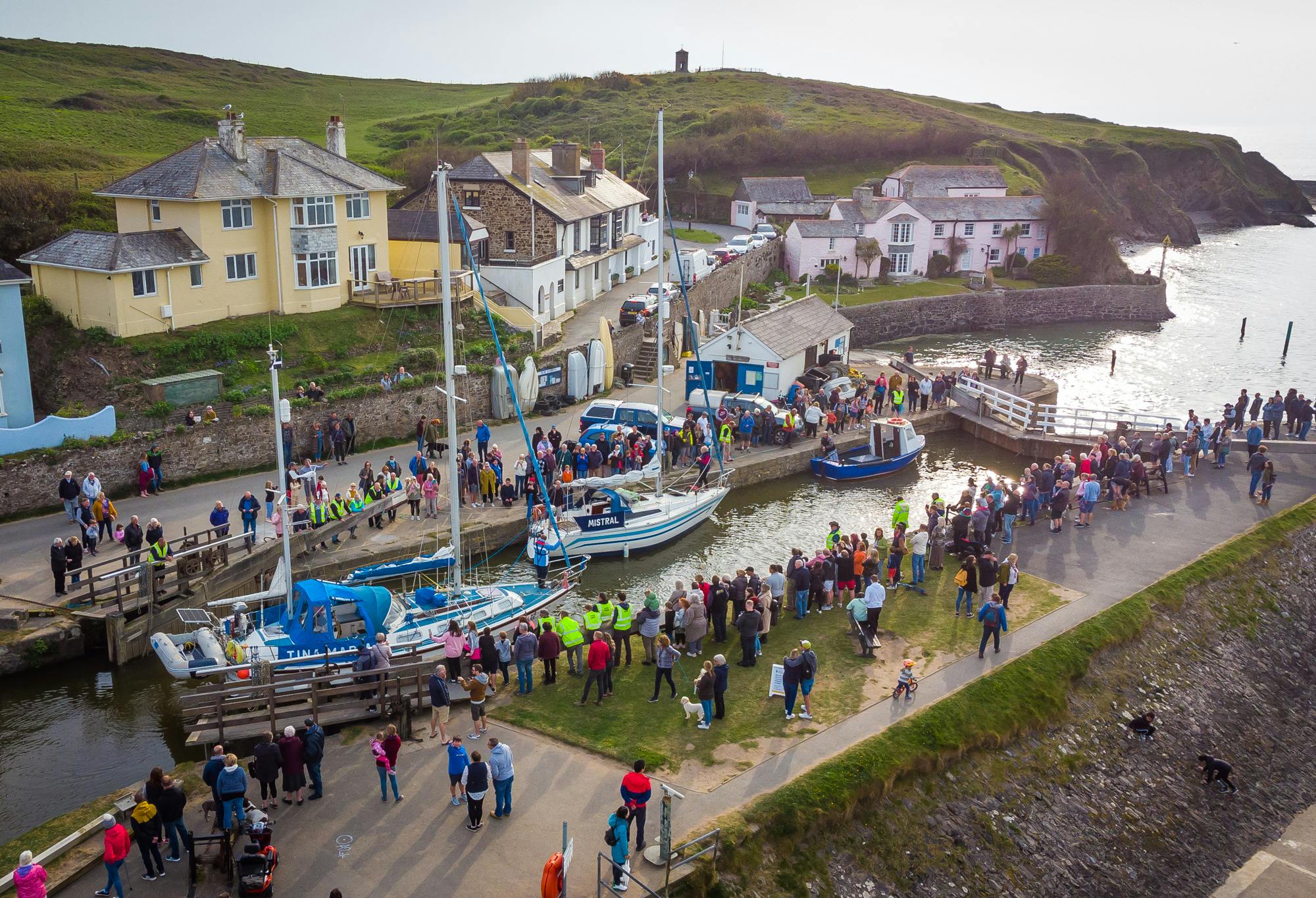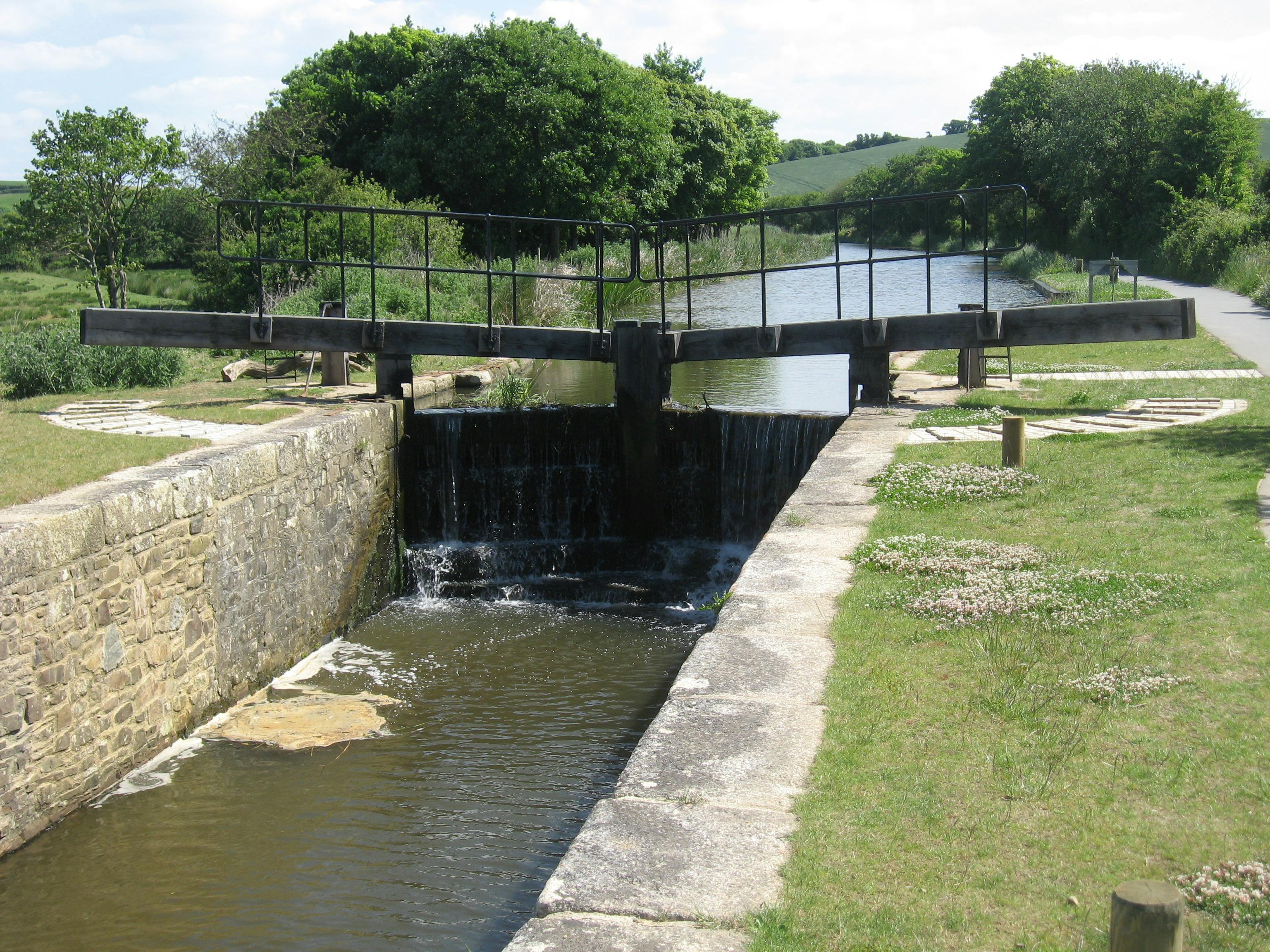Welcome to the Bude Canal and Harbour Engagement Platform
The Bude Canal and Harbour are iconic landmarks, supporting a range of land and water-based activities as well as providing a home for some of our rarest wildlife. They are a fantastic resource for the local community and put Bude on the map as a unique destination. Cornwall Council is proud to manage this special place and is committed to safeguarding it for current and future users.
On this page you can find regular updates providing the latest news and advice about the canal and harbour as well as background information to help you make the most of any visit.
Bude Canal Today
Constructed under an Act of Parliament between 1819 and 1825, the original 35.5 miles of canal was just part of John Edyvean’s (c.1770’s) ambitious 95-mile concept to join with the River Tamar. The canal was unique, in that it was constructed for agricultural purposes, transporting sea-sand to be applied as a soil conditioner and liming agent; a practice that fell away in subsequent decades as chemical fertiliser overtook.
Today only a short section of c. 1.8 miles from the harbour to Whalesbrough remains watered. With the upper canal reaches mostly dry, it no longer receives water from Lower Tamar Lakes, but instead relies on the rivers Strat and Neet, which flow through catchments dominated by improved grassland and arable cropping.
The canal and harbour are one Bude's foremost amenity spaces. A level tow-path provides an accessible route from the town to the surrounding countryside. The harbour and canal support small-scale commercial fishing, a coarse fishery, water-based activities and provide an attractive setting for canal-side food and retail outlets and accommodation.
This page is intended to help keep the community informed about the canal, providing updates and a place to ask questions. It has been developed in partnership between Cornwall Council Countryside and Maritime Teams, and we are pleased to work with a wide range of stakeholders involved in the canal and harbour through the Bude Valley Management Advisory Group:
Please note that the principle source of information for Bude Harbour is found at the following links:
- Bude Harbour News (select Bude filter) – News - Cornwall Harbours
- General information - Bude - Cornwall Harbours
The Bude Canal Dredging Programme referenced on this platform is part-funded] by the UK Government through the UK Shared Prosperity Fund. Cornwall Council has been chosen by Government as a Lead Authority for the fund and is responsible for monitoring the progress of projects funded through the UK Shared Prosperity Fund in Cornwall and the Isles of Scilly.

The Bude Canal and Harbour are iconic landmarks, supporting a range of land and water-based activities as well as providing a home for some of our rarest wildlife. They are a fantastic resource for the local community and put Bude on the map as a unique destination. Cornwall Council is proud to manage this special place and is committed to safeguarding it for current and future users.
On this page you can find regular updates providing the latest news and advice about the canal and harbour as well as background information to help you make the most of any visit.
Bude Canal Today
Constructed under an Act of Parliament between 1819 and 1825, the original 35.5 miles of canal was just part of John Edyvean’s (c.1770’s) ambitious 95-mile concept to join with the River Tamar. The canal was unique, in that it was constructed for agricultural purposes, transporting sea-sand to be applied as a soil conditioner and liming agent; a practice that fell away in subsequent decades as chemical fertiliser overtook.
Today only a short section of c. 1.8 miles from the harbour to Whalesbrough remains watered. With the upper canal reaches mostly dry, it no longer receives water from Lower Tamar Lakes, but instead relies on the rivers Strat and Neet, which flow through catchments dominated by improved grassland and arable cropping.
The canal and harbour are one Bude's foremost amenity spaces. A level tow-path provides an accessible route from the town to the surrounding countryside. The harbour and canal support small-scale commercial fishing, a coarse fishery, water-based activities and provide an attractive setting for canal-side food and retail outlets and accommodation.
This page is intended to help keep the community informed about the canal, providing updates and a place to ask questions. It has been developed in partnership between Cornwall Council Countryside and Maritime Teams, and we are pleased to work with a wide range of stakeholders involved in the canal and harbour through the Bude Valley Management Advisory Group:
Please note that the principle source of information for Bude Harbour is found at the following links:
- Bude Harbour News (select Bude filter) – News - Cornwall Harbours
- General information - Bude - Cornwall Harbours
The Bude Canal Dredging Programme referenced on this platform is part-funded] by the UK Government through the UK Shared Prosperity Fund. Cornwall Council has been chosen by Government as a Lead Authority for the fund and is responsible for monitoring the progress of projects funded through the UK Shared Prosperity Fund in Cornwall and the Isles of Scilly.

-
Rental Opportunity at Bude Inner Harbour
Share Rental Opportunity at Bude Inner Harbour on Facebook Share Rental Opportunity at Bude Inner Harbour on Twitter Share Rental Opportunity at Bude Inner Harbour on Linkedin Email Rental Opportunity at Bude Inner Harbour link
Rental Opportunity - Bude Canal (Inner Harbour) - Cornwall Harbours
Use: A space to site a boat/barge for any commercial use
Rent: Offers in excess of £10,000 per annum
Address: Bude Canal, Cornwall, EX23 8LE
Contact: Please telephone Tracey Rilett on 01872 322222 or email tracey.rilett@cornwall.gov.uk -
Zebra Mussel eradication trial to be tested this summer
Share Zebra Mussel eradication trial to be tested this summer on Facebook Share Zebra Mussel eradication trial to be tested this summer on Twitter Share Zebra Mussel eradication trial to be tested this summer on Linkedin Email Zebra Mussel eradication trial to be tested this summer link
Zebra mussels are a non-native invasive species and it's an offence to allow them to spread in the wild. They can cause damage to boats, infrastructure and our native wildlife, so South West Water and Cornwall Council have teamed up with experts to try methods of eradicating them from the Bude Canal.
A low impact method using barley straw to slightly tweak the acidity of the canal has been established through lab studies using sample water from the canal led by Prof. David Aldridge at Cambridge University. In preparation for a longer trial, an initial test will be in-situ later this July, consisting of two large sacks of sacks of barley straw anchored within the activity zone, opposite the launch area by the Tourist Information Centre. The sacks will be weighted down and marked with a coloured buoy, posing no risk to navigation or wildlife.
We kindly ask that the trail is not interfered with and anyone using the canal should simply navigate past the marker buoys without touching them.
-
Bude canal dredging and embankment repair projects drawing to a close
Share Bude canal dredging and embankment repair projects drawing to a close on Facebook Share Bude canal dredging and embankment repair projects drawing to a close on Twitter Share Bude canal dredging and embankment repair projects drawing to a close on Linkedin Email Bude canal dredging and embankment repair projects drawing to a close link
Two significant projects on the iconic Bude canal are drawing to a close in time for the summer holidays.
After some significant challenges in delivering a complicated and extensive dredging project and embankment repairs alongside the Crescent Carpark, Cornwall Council and CORMAC are delighted to be in the final stages of demobilising from site, meaning that the community and visitors will be able to enjoy the enhanced public space without diversions around site works for the first time in months and that the capacity of the carpark will be significantly reinstated.
Overall, despite programme delays resulting from mechanical glitches and extremely wet weather, the dredging project has delivered against dredging of c.6,240 cubic meters of silt from the canal from the Harbour to Whalesborough Weir.
Funded with support from the South West Regional Flood and Coastal Committee Levy and the Shared Prosperity Fund, the dredging will deliver benefits to the conveyance of flood waters, sustainability of the canal during drought conditions and to the habits and species supported by the canal, as well as helping safeguard the value of the historic waterway for the community and visitor economy of Bude and North Cornwall.
Equally, the fully Cornwall Council funded embankment repairs that have replaced an unconsolidated bank with steel sheet piling represent an investment in the canal’s future, helping to reduce the risk of further deterioration in the face of more extreme weather patterns and potential changing water levels.
The expectation is that all diversions alongside the canal will be removed by the end of July, along with reinstatement of full capacity in the Crescent Carpark.
Cornwall Council and CORMAC would like to thank everyone in the community for bearing with the disruption whilst these major projects were completed and invites everyone to make the most the enhanced facility at the Canal. You can participate in many water activities, enjoy food and shopping at the harbour and even get involved in helping to protect and conserve this special place through volunteering, Find out more at the Tourist information Centre, or by contacting countrysideservice@cormacltd.co.uk
-
Dredging Approaching Final Stages
Share Dredging Approaching Final Stages on Facebook Share Dredging Approaching Final Stages on Twitter Share Dredging Approaching Final Stages on Linkedin Email Dredging Approaching Final Stages link
Cornwall Council are pleased that a complex operation to dredge the canal is entering its final stages.
The programme to dredge the Bude Canal started in November 2022, at which point impact on canal users and facilities was very limited, working in the inland zones where an excavator can reach the channel from the bank. However, since November 2023 the much more challenging task of dredging the lower zones has resulted in part of the Crescent Carpark being taken up by storage lagoons and pipelines running into the canal.
Whilst it would have always been impossible to avoid such a major project having impact on users of the space, this is what we have done to keep it to a minimum:
- Major embankment repairs have taken place at the same time, reducing the overall length of major works activity on the site
- Working closely with activity providers to provide access to non-operational zones of the canal for their business activity to continue
- Standing operations down over bank holiday weekends
Remaining activity:
From Monday 20th May dredging is planned to move to the Harbour zone which will take approx one week
- From then on there are some sections of the zone from Falcon Bridge to Truscott’s Bridge still to be dredged
- Overall, the target completion date is the last week in June, which is to include removal of lagoons from the carpark, reducing works space in the carpark down to just the overflow carpark and a smaller area of the main carpark needed temporarily to complete the embankment repairs.
The two major enhancement projects delivered by the dredging and embankment repairs represent significant investment in this iconic feature of Bude and demonstrate the Council’s commitment to maintaining this important asset for the community.
We are delighted that the works are on-track to be completed prior to the important summer holidays.
-
Easter Holidays: Ongoing Dredging and Construction works
Share Easter Holidays: Ongoing Dredging and Construction works on Facebook Share Easter Holidays: Ongoing Dredging and Construction works on Twitter Share Easter Holidays: Ongoing Dredging and Construction works on Linkedin Email Easter Holidays: Ongoing Dredging and Construction works linkDredging works continue on the Bude Canal and will be undertaken in the inland section from Rodds Bridge down to Truscotts Bridge during the weeks of the Easter Holidays, and will continue there until approx. 19th April.
All users and visitors to the canal and its facilities should be aware that dredging pipework has been installed along the canal bank. This will be kept away from the tow path footway in the main, however there are points at which the pipe needs to cross the path. Where this is the case, ramps will be placed over these pipes to maintain unimpeded access.
Use of the canal waterway itself is prohibited in the zone of active dredging. This means that the zone from Truscotts Bridge to Rodds Bridge is not available for water activity from 2nd April until approx. 19th April.
On completion of this section the dredging operation will move down into the harbour area close to the sea lock. We are expecting to start on or around the around 22nd April and should take about 1 week.
The dredger will then move back into the upper basin and complete the remaining silt removal from there. Dredging is expected, to be completed by the beginning of May with the storage lagoons removed and the Crescent car park fully open again by the end of May.
During the dredging operation the section of failed canal bank from the Falcon bridge for about 100m south is being repaired. This work will be ongoing and is expected to be complete by end of June.
Whilst these works are going on canal users are advised to launch in the harbour area close to Falcon Bridge and the Olive Tree.
All working areas will be securely fence off and float barriers will restrict and prevent access into the construction area form the canal.
-
Eradicating Zebra Mussel in the Bude Canal
Share Eradicating Zebra Mussel in the Bude Canal on Facebook Share Eradicating Zebra Mussel in the Bude Canal on Twitter Share Eradicating Zebra Mussel in the Bude Canal on Linkedin Email Eradicating Zebra Mussel in the Bude Canal link
Southwest water, Cornwall Council and Southwest Lakes Trust are pleased to invite you to a consultation event to find out about the results of research looking at low impact methodologies for helping to reduce and eradicate the zebra mussel population in the canal.
Attendees will hear from Professor David Aldridge of Cambridge University, who has been involved in monitoring the zebra mussel and investigating eradication methodologies as part of a project funded by Southwest Water. He will highlight the results of lab-based trials and recommend actions that could be taken forward as soon as this spring.
The event is taking place at Little Pig Farm Shop on 22nd March at 7pm.
To book a place please contact mmbrown@southwestwater.co.uk
-
Dredging Programme Update
Share Dredging Programme Update on Facebook Share Dredging Programme Update on Twitter Share Dredging Programme Update on Linkedin Email Dredging Programme Update linkThe extensive programme to dredge the Bude Canal continues to make progress but not without challenges that have led to a update in the expected timeline to completion.
The operation to remove over 4,000 cubic meters of silt from the canal have never been easy, impacted by lack of available land on the canal-bank and by the presence on non-native invasive zebra mussel, challenges that have been compounded by a slow start to works whilst the complicated set-up was established and poor weather during the early part of 2024.
Whilst it has always been a strong desire to complete the element of works within the Crescent Carpark by the start of the 2024 Easter Holidays, the delivery contractors Cormac are now reporting that this target will likely be extended until the end of April.
Cornwall Council, who own the canal recognise that the visitor economy is vital to Bude and that the canal is a popular and iconic community asset and the decision to continue to complete the task through a timeline extension is based on the importance of removing the silt to deliver the outcomes of increased flood water conveyance, a safe depth for water activity use, improvement of freshwater habitat and increased longevity of the canal.
About half of the car parking spaces within the Crescent carpark remain available, with the Harbour, Summerleaze and Crooklets carparks being close alternative options.
Canal Remains Closed
To protect the safety of the general public and staff delivering the dredging programme, the canal will remain closed to all activity including private launches and fishing within the works zone between the buoy markers until further notice of a reopening is issued by Cornwall Council.
-
Tow Path and Cycle Path Closure and Diversion
Share Tow Path and Cycle Path Closure and Diversion on Facebook Share Tow Path and Cycle Path Closure and Diversion on Twitter Share Tow Path and Cycle Path Closure and Diversion on Linkedin Email Tow Path and Cycle Path Closure and Diversion link
Works continue to dredge the canal, with a temporary closure and diversion of the Tow Path and Cycleway in place in the main operations area to protect everyone's safety.
Visitors should be aware of and follow the diversion information signage.
The diversion is in place in the zone just upstream of Falcon Bridge, adjacent to the Tourist Information Centre and takes walkers, runners and cyclists through a section of safety-fenced pathway to rejoin the original path and continue their onward route.
IMPORTANT: Cyclists must dismount before entering the fenced section as there is limited opportunity for walkers to step aside to let bikes pass.
The images below indicate the signage and route to look out for and follow:




-
Work underway to dredge the Bude Canal
Share Work underway to dredge the Bude Canal on Facebook Share Work underway to dredge the Bude Canal on Twitter Share Work underway to dredge the Bude Canal on Linkedin Email Work underway to dredge the Bude Canal link
The 200-year-old Bude Canal is being desilted to restore flood mitigation benefit and maintain its contribution as one of Bude’s key amenity attractions.
Work to dredge silt from the Bude Canal is well underway, with the Crescent carpark down to a reduced capacity as it is used to dewater the silt arisings. The project, which is due to complete by the Easter holidays has been a high priority for some time, requiring careful planning due to the environmentally sensitive and historically important nature of the site.
One of the major considerations in designing the scheme methodology has been how to avoid the spread of zebra mussel; an invasive non-native species of mussel that have a small population in the harbour and upper basin areas of the canal. Zebra mussel cling to hard surfaces can lead to significant damage to infrastructure, such as completely filling water pipes, as well as attaching to our native molluscs causing them to not be able to feed. Several steps are in place to mitigate the risk of their spread: One of the biggest risks was around microscopic zebra mussel spawn free-floating in the water, so work didn’t start until water temperatures dropped below 11°C, at which point zebra mussel stop spawning. Even so, we are still making sure that all water being de-watered from the silt is being returned into the canal and not entering any other systems. Once centrifuged, the silt is remaining on site undercover for 2-weeks to allow any remaining viable spawn or mussels to dry and die-off, before being taken to a permitted waste site where there is no risk of it entering an aquatic environment.
Following on from dredging at the inland extent of the canal in November 2022 and March 2023, this phase plans to remove 4,000 cubic meters of silt from Rodds Lock to the sea lock. It will restore the flood risk mitigation role of the canal by increasing the amount of water that the canal can convey out to sea in the event of high river flows, and safeguard use of the canal for water-activity by maintaining a safe depth for navigation and capsizing.
Equally, the ability of the canal to hold more water through desilting, will help protect the important habitat of the site, with Cornwall Council, who own and manage the canal and harbour saying that this project is vital in helping the canal be more resilient to climate change, which will see increased fluctuations between periods of drought and flood.
The dredging project is part funded by the UK Government through the UK Shared Prosperity Fund. Cornwall Council has been chosen by Government as a Lead Authority for the fund and is responsible for monitoring the progress of projects funded through the UK Shared Prosperity Fund in Cornwall and the Isles of Scilly.
-
Preparations for dredging well underway
Share Preparations for dredging well underway on Facebook Share Preparations for dredging well underway on Twitter Share Preparations for dredging well underway on Linkedin Email Preparations for dredging well underway linkMany of you will have noticed the preparations around the canal and Crescent carpark for the dredging operations.
The dewatering area is now laid out within the carpark, and over the weekend 11th November the dredging pontoon was lifted onto the water in the Upper Basin and the excavator from which the dredging suction head will be operated was mounted on it.
Our plan continues to be to commence dredging in the zone between Truscott's Bridge and County Road Bridge later this week.
This project is part-funded by the UK Government through the UK Shared Prosperity Fund. Cornwall Council has been chosen by Government as a Lead Authority for the fund and is responsible for monitoring the progress of projects funded through the UK Shared Prosperity Fund in Cornwall and the Isles of Scilly.

Key Dates
-
12 January 2023
-
21 July 2024
-
16 July 2024
Documents and BVMG Updates
-
 BVMAG Update Summer 2020.pdf (648 KB) (pdf)
BVMAG Update Summer 2020.pdf (648 KB) (pdf)
-
 BVMAG update Winter 2020 -21 Public.pdf (6.1 MB) (pdf)
BVMAG update Winter 2020 -21 Public.pdf (6.1 MB) (pdf)
-
 BVMAG update Summer 2021.pdf (4.49 MB) (pdf)
BVMAG update Summer 2021.pdf (4.49 MB) (pdf)
-
 BVMAG update Winter 2021-22 (002).pdf (4.77 MB) (pdf)
BVMAG update Winter 2021-22 (002).pdf (4.77 MB) (pdf)
-
 Bude Canal Presentation_ SWRFCC 02082022Reduced.pdf (3.71 MB) (pdf)
Bude Canal Presentation_ SWRFCC 02082022Reduced.pdf (3.71 MB) (pdf)
-
 Capital Projects Update_Bude Manaegment Advisory Group - 22082022.pdf (2.67 MB) (pdf)
Capital Projects Update_Bude Manaegment Advisory Group - 22082022.pdf (2.67 MB) (pdf)
-
 Presentation - Public Meeting 12th Jan 2023 (2.66 MB) (pdf)
Presentation - Public Meeting 12th Jan 2023 (2.66 MB) (pdf)
-
 Record of Public Meeting 12th Jan 23.pdf (243 KB) (pdf)
Record of Public Meeting 12th Jan 23.pdf (243 KB) (pdf)
-
 Bude Canal Embankment Visualisation.pdf (8.9 MB) (pdf)
Bude Canal Embankment Visualisation.pdf (8.9 MB) (pdf)
Follow Project
News Categories
- # local nature reserve (1)
- #climate change (1)
- #dredging (1)
- #drought2022 (2)
- #ecology (2)
- #fisheries (1)
- #flood (1)
- #harbour #drought2022 #sealock (1)
- #water-based activities (2)
- #wildlife (1)
- #zebra mussel (2)






